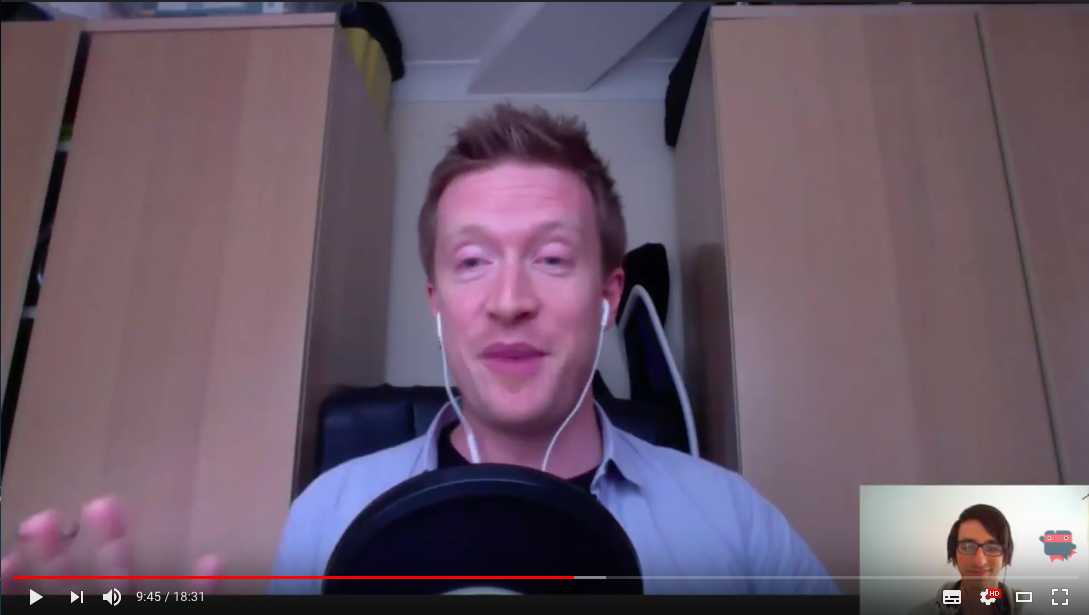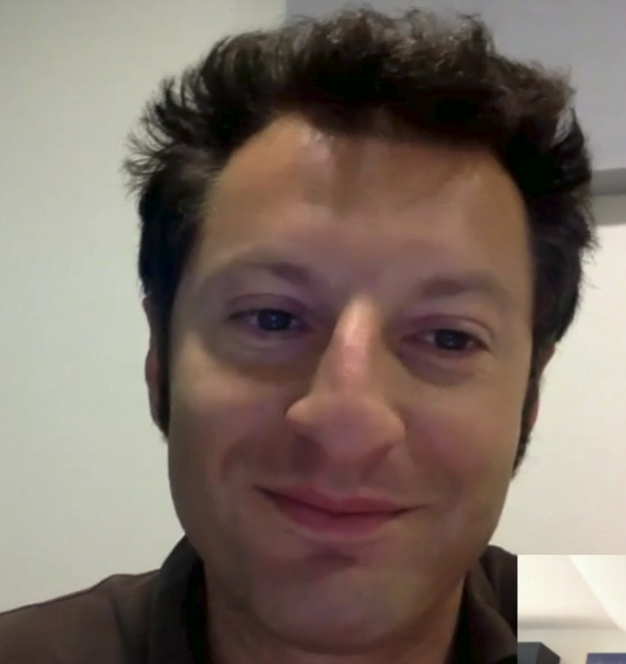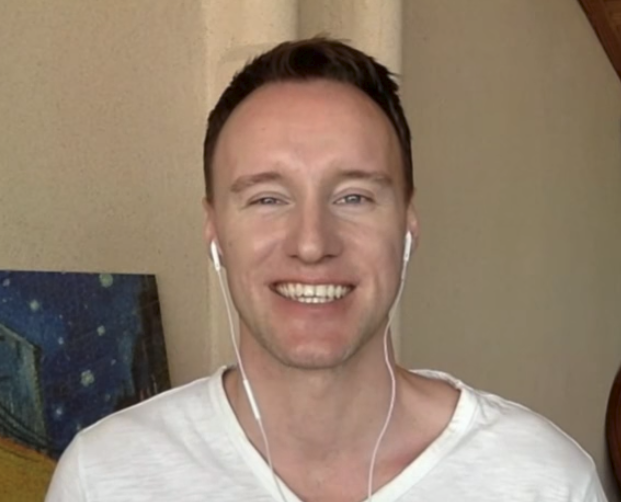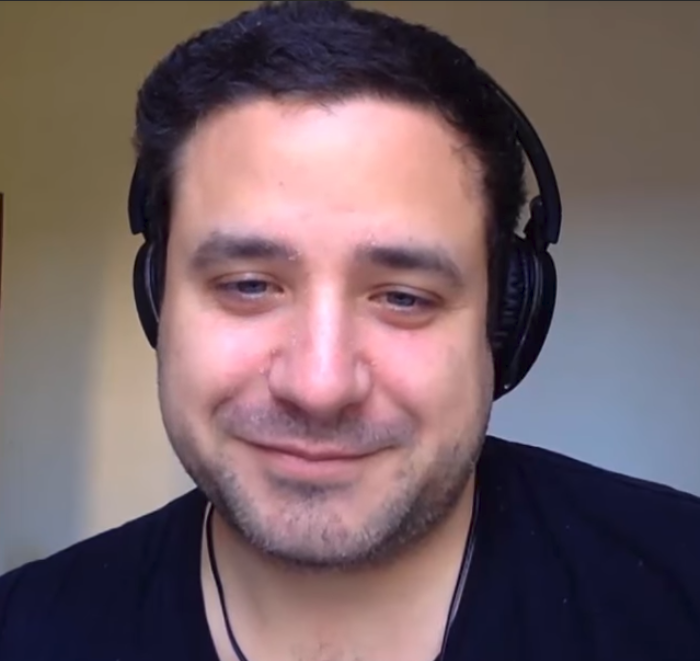Why Learn a Language? Here’s What 8 World Class Polyglots Said
Why learn a language? It’s a good question!
In the last couple of years I have had the honour to interview some of the most popular polyglots in the world, and I had the opportunity to ask them about why they learn languages.
I am a polyglot myself. I speak six languages fluently and I have been writing about language learning for three years on Sprachheld. Therefore, I thought I knew a lot about language learning. But speaking to all these polyglots I learned so much more.
I learned that every polyglot had their own reasons and motivation to learn languages. But different as they may seem, they also share a lot of similarities. In this post, I would like to share all the reasons and motivation that these polyglots told me about and analyze what these reasons have in common.
Let’s start with one of my very first interview partners:
Olly Richards — Inspired for Languages by Working in a Cafe

Olly Richards of I Will Teach You a Language didn’t get into languages until he was 19 when he started to work in an international café in London. There, he met lots of tourists speaking all kinds of different languages.
This got him intrigued and he wanted to also be able to speak the languages that surrounded him.
Nowadays, he motivates himself to learn new languages by going to the countries where they are spoken. He spent time in Japan, Qatar, Egypt and France. He went to France on a whim without knowing what to expect. This forced his hand and made him learn French to be able to get around.
Olly also has a way to motivate himself in bad times. He knows he already learned several languages. He knows the process to learn a foreign language and that he can master it because he was able to do so before. This motivates him even when doesn’t feel like he is making progress.
Luca Sadurny — Paid for a Language Test, then Started Studying!

Luca Sadurny, co-founder of MosaLingua, became interested in foreign languages began when he went to Amsterdam and had a hard time conversing with the locals in English. This motivated him to learn his first foreign language to a proper level.
To turn up the heat he registered himself for an English certificate test. He had four months to prepare and paid the €130 registration fee — a significant expense for the then-student Luca. The time frame and the cost of the test motivated him to learn English.
He did something similar with French. He got into the Erasmus-program to go to France. He had four months to get his French up to speed to be able to follow the lectures. These were, surprise, surprise, completely in French. That was motivation enough to learn the language.
His interest in Romanian came about because his wife is from Romania. He wanted to be able to speak to her, her family and her friends in their native language.
Vladimir Skultety — Grew Up With Three Languages

Vladimir Skultety from Forever a Student grew up with three languages at the same time: Czech, Slovak and Hungarian. The first two were due to him living in Czech Republic, while the third was because his nanny was Hungarian and spoke Hungarian to him.
They had German TV at home and he watched all the shows and movies from Hollywood in German (in Germany everything is dubbed). This way he learned German.
He has lived in nine countries in total and is always motivated to learn the language of the country that he’s in. That’s the main reason he travels – to motivate himself to learn the local language. Once he surrounded himself with a language, he was more than motivated to learn it because he would be able to actually use it.
However, he recognizes that without having that motivation it is hard for him to learn a foreign language. This is the reason why he still hasn’t learned Turkish even though he would really like to.
Luca Lampariello — It All Started with an English Tutor

Luca Lampariello of The Polyglot Dream got into languages when his mother got him a language tutor for English. He says that she was very helpful and he improved very quickly with her. This gave him lots of motivation to continue learning English and later motivated him to learn French.
For French, he was watching French TV regularly. This way he improved quickly and was also motivated to understand even more.
Later, when he already spoke German and went to Sardinia he met Germans. They said that he speaks German really well and inquired whether he had German parents. This motivated him a lot to continue learning languages.
Steve Kaufmann — Learned German for Business Trips

In the 90’s Steve Kaufmann, founder of LingQ, was a lot in Germany on business trips. He was constantly on the road with his agent and his clients. They spoke a lot of German. This motivated him to learn that language and he was able to do so.
We conducted the interview in German. Since Steve hasn’t spoken German in a while this was great motivation for him to brush up his skills. The week before speaking with me he was motivated to get his German back up to speed to be able to speak with me as well as possible.
Alex Rawlings — Wants to Speak with Friends Across Europe

Alex Rawlings, Polyglot in Residence at Memrise, only learns languages that he is really interested in and for which he has a use. Since he has friends in different countries across Europe and travels a lot he is able to use and improve all of his languages.
His advice for language learners is to write down 10 reasons why they want to learn their language and have a look at these reasons when they are less motivated.
Kerstin Cable — Gets Encouragement from Instagram

Kerstin Cable from Fluent Language found a great way to motivate herself to learn a foreign language: by using social media.
She posts her results on Instagram for instance. This way she gets encouragement from other Instagram users. She also gets her mistakes corrected. She sees this as a double win!
Furthermore, she likes to learn languages that she is really interested in. Welsh being her latest example. This way she really enjoys the process.
Lindsay Williams

Lindsay Williams (of Lindsay Does Languages fame) has a similar approach to Kerstin to motivate herself to learn her foreign languages: speaking about it online.
She says that her blog really helps her stay motivated to keep learning her languages. Because all the world (figuratively speaking) is watching her and she has to perform.
As a language coach, her advice to learn a language based on one’s own interests. It’s important to learn stuff that is really relevant to a language learner. This could be football but it could also be songs by Shakira (that was the reason Lindsay wanted to learn Spanish). You like to talk about football? Learn the necessary words to be able to speak about the topic. If you love Shakira’s songs you’ll be more motivated to learn the lyrics and the words.
For her it’s also important to work towards milestones. It’s much easier to motivate oneself for goals that are easily achievable like speaking about a certain topic rather than big goals like learning to speak a foreign language fluently.
Why Learn a Language? — the 3 Core Principles
In this section of the article, I will:
- Analyze the three core motivation principles that polyglots learn languages
- Give examples from polyglots of how this principle applies to them
- Present a way how you can apply this principle to motivate yourself to learn your language.
Let’s get started!
Core Principle 1: Being Surrounded by the Language (Immersion)
This is the number one reason polyglots learn a foreign language. If they have people in their surroundings speaking that language, they have a very good reason to pick it up.
Immersion could mean living in a foreign country and wanting to learn the local language to be able to fit in. It could also mean there are tourists around you and you want to be able to communicate with them in their language.
Here are some examples for this:
- Vladimir Skultety liked to watch German TV because it had the best movies
- Olly Richards worked in an international café with foreigners and tourists
- Steve Kaufmann was surrounded by German in Germany, where he travelled for business reasons.
Conclusion: Surround yourself with your target language. Listen to and see the language as often as possible through TV, radio and online. If possible, make friends with native speakers, or travel to a country where the language is spoken.
Core Principle 2: Brute Force and Deadlines
If you go to the supermarket and check out the magazines at the cashier's you will find headlines like “get fit in 4 weeks” or “get a beach body before going on vacation in one month”.
These articles capitalize on the fact that it is easy to motivate ourselves for a short time frame, because most of us want quick results.
It’s easier to motivate yourself to work really hard for a short amount of time and get quick results rather than stay motivated for longer periods of time by consistent work and see little results (who doesn’t want that quick fix?).
That’s also why people are so motivated to workout super hard for a few weeks before going on beach vacation. It may not have the biggest impact but it will have some impact and motivation will stay intact until the end of the vacation.
It works the same way with language learning. If you have an upcoming trip or test you are more motivated to learn the language because you will soon be “forced” to use your newly acquired skills. This is a great way to motivate yourself to work really hard for some time.
Here are some examples for:
- Luca Sadurny booked an English test and had four months to prepare and he went on Erasmus to France and had four months to be ready to attend French lectures
- Steve Kaufmann had the deadline of his interview with me to brush up his German
Conclusion: Get yourself into a position where you have a deadline for learning your language. Sitting a test is an excellent way of doing this. The Add1Challenge (now the Fluent in 3 Months Challenge) is another.
Core Principle 3: Peer Pressure (and Peer Praise)
People around us are a great motivator to learn a foreign language. So, when we tell others that we want to learn a language we don’t want to let them down. That’s why we stay motivated for longer periods of time.
This works even better when we show our progress to our peers. Their positive feedback motivates us even more to improve our language skills.
Here are some examples for this:
- Lindsay Williams’ blog where she talks about language learning motivates her to continue learning
- Kerstin Cable posts her progress on social media to get encouragement and her mistakes corrected
- Luca Lampariello received praise about his German in Sardinia from German tourists
Conclusion: Tell as many people as possible about the fact that you are learning a language. Even better, get other friends to learn the language with you.
If You Enjoyed This Article…
And you would like to know more reasons from the Fluent in 3 Months community for learning a foreign language, check out this article.
You can watch all the interviews I conducted for this article here.




Social